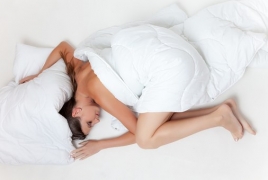
Poor sleep may be linked to a greater risk for poor mental health on college campuses, new research suggests, according to Reuters.
With each night of insufficient sleep, the risk of mental health symptoms increased by roughly 20%, according to findings presented June 11 at Sleep 2019, the annual meeting of the Associated Professional Sleep Societies.
The findings suggest college students might benefit from sleep health education, lead author Thea Ramsey, an undergraduate at the University of Arizona in Tucson, told Reuters Health by email.
Her advisor Dr. Michael Grandner, senior author of the study and director of the university’s Behavioral Sleep Medicine Clinic, told Reuters Health that while the importance of sleep in mental health has been shown before, “Our study represents one of the largest to date that shows this link, and it shows that the more nights of insufficient sleep you get as a college student, the more likely that you will exhibit a wide range of mental health symptoms.”
Ramsey, Grandner and colleagues analyzed data from more than 110,000 students, acquired through the National College Health Assessment. They defined “insufficient sleep” as the number of nights that students did not sleep enough to feel rested.
In their analysis, insufficient sleep was linked to a 19%-29% increase in mental health symptoms. Loneliness increased by 19% for each night of insufficient sleep, depressed mood increased by 21%, anxiety by 25%, desire to self-harm increased by 25%, suicidal thinking increased 28% and exhaustion increased 29%, among other symptoms evaluated.
The researchers examined nearly 8,500 student athletes as a subgroup and found similar associations. Ramsey had suspected there might be differences in athletes’ response to insufficient sleep, but the data did not appear to bear that out.

